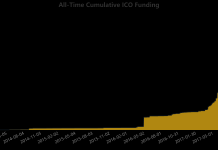Thailand’s SEC approves spot Bitcoin ETFs for institutional and ultra-high net worth investors. The US SEC approves Bitcoin ETFs and reclassifies them as securities in Thailand. The SEC’s move aims to take advantage of the rise of Bitcoin and targets financially sophisticated investors.
Thailand’s Securities Exchange Commission (SEC) has given asset management companies the green light to invest in spot Bitcoin exchange-traded funds (ETFs). However, only institutions and individuals with very high net worth are eligible for this investment opportunity.
This initiative underlines Thailand’s cautious but progressive stance towards integrating digital currencies into its financial framework.
Previously, regulations governing investments by asset management companies did not cover digital asset ETFs, and under the SEC Act, asset managers can only offer trading in assets classified as securities.
However, after the US securities regulator approved bitcoin spot ETFs in January, shares of bitcoin spot ETFs became defined as securities and not cryptoassets under Thai regulations.
Why Thailand Has Changed Its Stance Towards Bitcoin Spot ETFs
SEC Secretary General Pornanong Budsaratragoon announced this policy change following the US SEC’s endorsement of spot Bitcoin ETFs. By reclassifying these ETFs as securities, Thai companies now have an open path to investing in this new asset class.
The recent rise in the price of Bitcoin to $72,000 has sparked great interest in cryptocurrency investments. Consequently, the SEC approval is timely as it opens new avenues for Thai investors at an opportune time.
This strategy is aimed at capitalizing on the volatility and appeal of cryptocurrency, and is specifically aimed at a more financially sophisticated audience. Asset management companies had asked the SEC for permission to invest in digital assets in the following terms:
“Asset management companies asked the SEC to allow them exposure to digital assets, especially Bitcoin and Bitcoin spot ETFs, but we need to carefully consider whether we should allow asset management companies to invest directly in digital assets.” due to the high risk.”
Furthermore, the London Stock Exchange’s (LSE) announcement to accept Bitcoin and Ethereum exchange-traded notes (ETNs) echoes this sentiment of cautious optimism. This initiative, scheduled to begin in the second quarter of this year, is aimed at professional investors and offers an investment opportunity similar to that of bonds.
Unlike ETFs, ETNs involve investing in a debt instrument that tracks the performance of an asset. This development further illustrates the growing acceptance of digital currencies in major financial markets.
There is a Catch: Small Investors Are Excluded
The latest rules have left out the ability for retail investors to gain exposure to spot bitcoin ETFs. The use of digital assets for payments was banned by the government in March 2022, and the SEC banned the use of cryptocurrencies for loans and investments in July 2023.
However, the regulator lifted restrictions on retail investors purchasing digital tokens backed by real estate or infrastructure projects in January.
Thailand’s stance on Bitcoin Spot ETFs
In addition to these regulatory changes, the SEC has also supported new measures by the Stock Exchange of Thailand (SET) to improve market supervision. These efforts aim to increase investor confidence and promote the long-term development of the Thai market.
These updates, which cover various trading activities, ensure a stable and reliable investment ecosystem. Thailand’s broader strategy to become more crypto-friendly is evident in its recent fiscal policy adjustments.
By exempting domestic cryptocurrency trading from value added tax (VAT), the Government shows its ambition to foster an environment conducive to the growth of digital assets.
By Audy Castaneda











